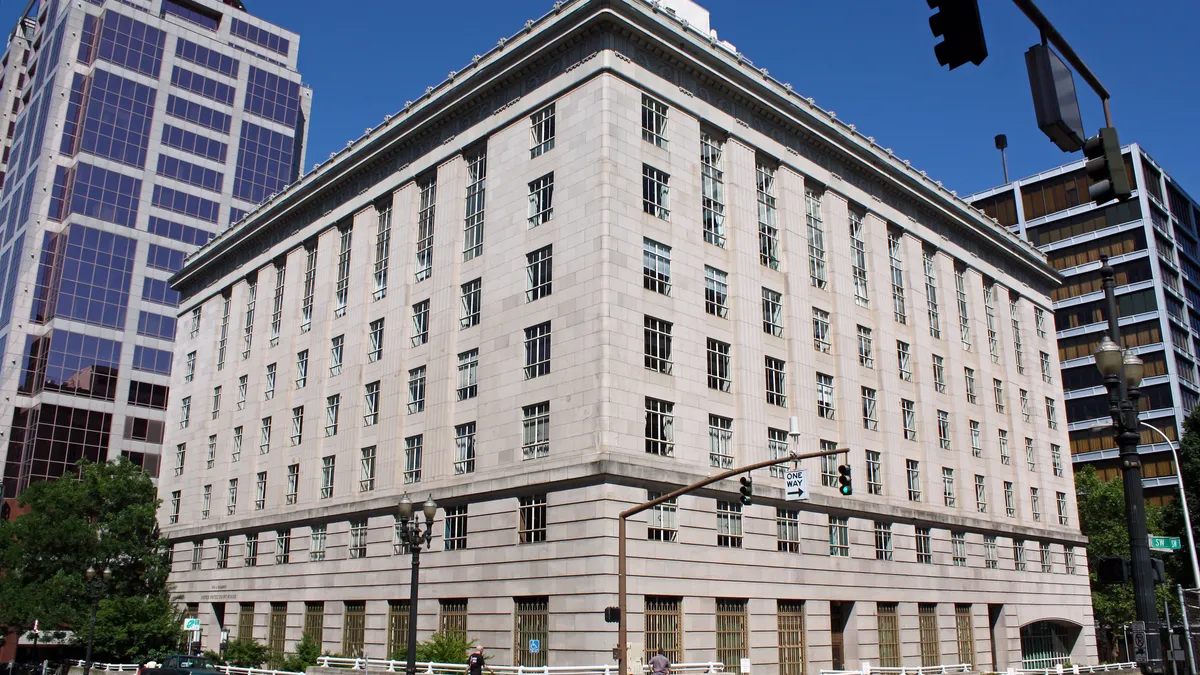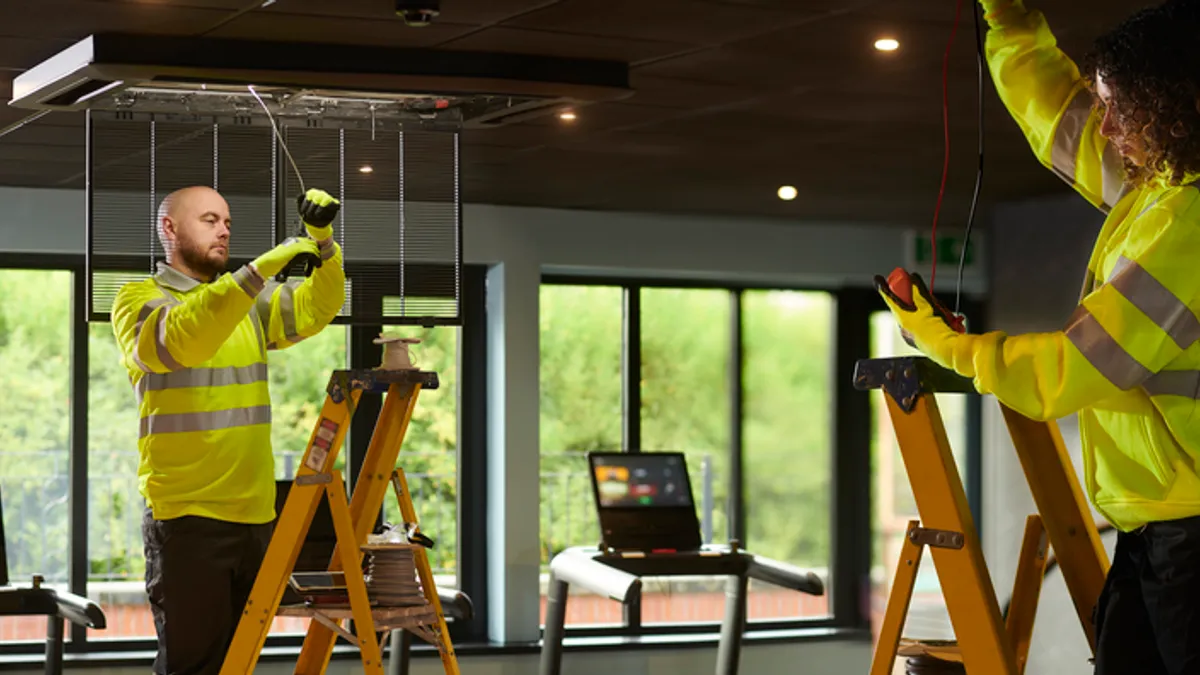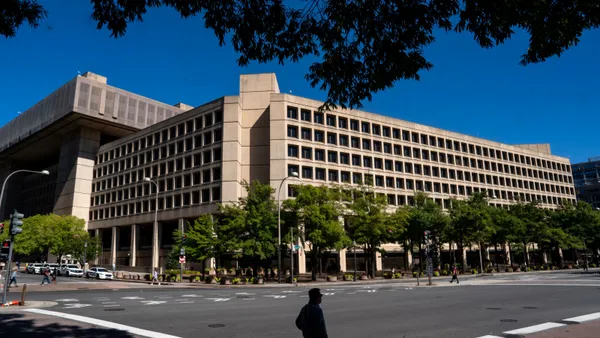Dive Brief:
- The U.S. General Services Administration announced Wednesday that it will begin the process to dispose of eight underused properties in seven states and Washington, D.C..
- Divesting these properties could shed an estimated 1.5 million square feet of federal office space, potentially saving over $475 million in costs over 10 years, according to a news release. The announcement is the first step in a process involving property sales, transfers or exchanges with federal, state or local entities or the public.
- Together with 23 disposition projects GSA announced last year and three additional properties for disposition it announced in 2024, the successful disposition of these buildings will reduce GSA’s inventory by over 6 million square feet and avoid over $1.8 billion in costs over 10 years, GSA said.
Dive Insight:
GSA faces long-standing pressure to rid the federal government of vacant or underused spaces within its federal buildings and properties. The COVID-19 pandemic, which catalyzed a shift toward telework, is thought to have increased the problem. While just 3% of federal employees teleworked every day before the pandemic, nearly one-third are now fully remote and only 6% work on-site on a full-time basis, according to a report released this month by Sen. Joni Ernst, R-Iowa, who will head the Senate’s new Department of Government Efficiency caucus.
“[Billions] of dollars are being spent heating, cooling, and maintaining largely empty buildings. Billions more is being wasted on new office furniture. Meanwhile, getting rid of just 23 of the government’s many underutilized buildings and properties will save taxpayers more than $1 billion,” Ernst states in the report. “This is a small fraction of potential savings if other unused space was sold off.”
Data from the Office of Management and Budget, the Government Accountability Office, the Office of Personnel Management and “other credible sources,” however, “tell a different story,” Gleb Tsipursky, CEO of hybrid work consultancy Disaster Avoidance Experts, wrote in Federal News Network Tuesday. Only about half of federal employees are eligible for telework, and telework-eligible workers spend about 61% of their work hours on site, Tsipursky wrote. He also emphasized the positive impact of telework on productivity, cost savings, retention and operational efficiency that federal workers have reported.
Lawmakers have been urging federal agencies to address the financial and environmental issues empty or underused office space poses, including the impact of heating, cooling and maintaining buildings. Last year, the GAO recommended that OMB take the lead in creating benchmarks to measure space utilization in federal buildings. A recent OMB memorandum sets office design standards and a minimum average annual occupancy rate of 60% for federal agencies in owned or leased general use office spaces designated for office work that exceed 50,000 usable square feet.
The eight properties beginning the disposition process are the Montpelier Federal Building in Montpelier, Vermont; the Brickell Plaza building in Miami; the Charles A. Halleck Federal Building in Lafayette, Indiana; the Bismarck Federal Building in Bismarck, North Dakota; the James V. Hansen Federal Building in Ogden, Utah; the Gus J. Solomon U.S. Courthouse in Portland, Oregon; the Richard B. Anderson Federal Building in Port Angeles, Washington; and a building that serves as a GSA regional office in Southwest Washington, D.C., according to the news release last week. GSA disposed of five properties in fiscal year 2023 and said it plans to wrap up the disposition process for six more properties this year.
The Biden administration’s proposed fiscal year 2025 budget allocates $425 million for GSA to shrink its federal portfolio and cut long-term costs through a real estate optimization program.
The actions GSA announced last week demonstrate a “commitment to accelerating the disposition of federal buildings that don’t use taxpayer dollars effectively,” GSA Administrator Robin Carnahan said in a statement.
GSA said it will work closely with agencies affected by disposition decisions to plan and budget for relocation.















